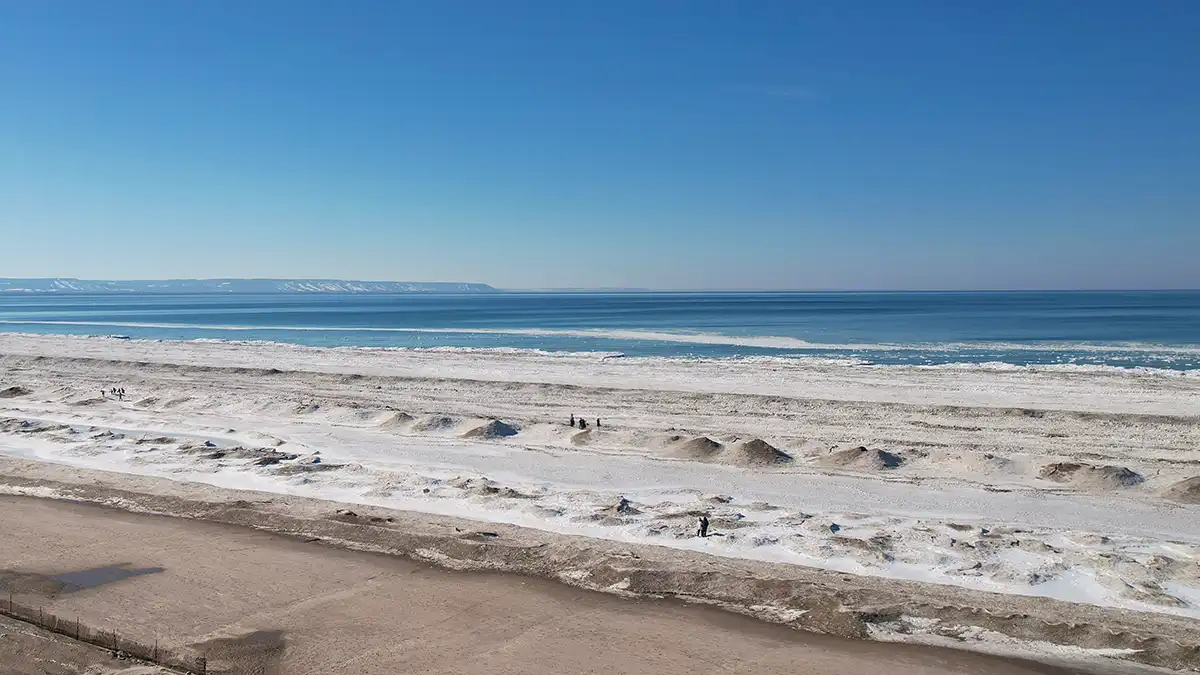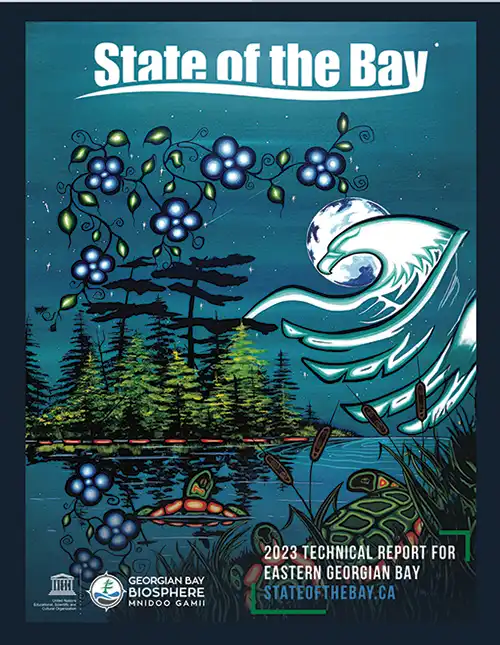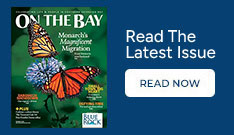New report documents the effects of climate change on the Georgian Bay Biosphere.
by Roger Klein

The 177-page technical report reviews the research on 11 different indicators or themes including climate change, total phosphorus, the aquatic food web (fisheries), coastal wetlands and landscape biodiversity. The review includes data from a broad spectrum of organizations including the Severn Sound Environmental Association, Environment and Climate Change Canada, the U.S. Environmental Protection Agency, and the National Oceanic and Atmospheric Administration Great Lakes Environmental Research Laboratory, among many others including Indigenous knowledge holders and elders.
The report documents several troubling trends regarding the effects of climate change and invasive species on the Bay’s ecosystem. It also identifies gaps in the existing scientific research.
The growing body of data shows that the annual maximum ice cover on the Great Lakes is decreasing by 4.1 percent per decade while average surface water temperatures are rising in the summer. Both are indications of rapid environmental change that is consistent with global climate change models.
Lake Huron has warmed by 2.9 degrees since 1968. Severn Sound in eastern Georgian Bay warmed by 2.3 degrees. Research from other parts of the Great Lakes shows that deep-water temperatures have warmed as well. The warming threatens cold water fish habitat for species such as whitefish, cisco and lake trout.
There’s also trouble at the very base of the food web, especially in offshore areas where phosphorus levels have plummeted in recent decades. Phosphorus is a key nutrient for plants and animals and without it there is little to sustain life. Offshore areas of Lake Huron and Georgian Bay are now described by scientists as “ultra-oligotrophic.”
The invasion of alien species including Dreissenid mussels (zebra and quagga) is believed to be a significant factor in that change. The mussels have been wreaking havoc on the Bay’s ecosystem since the 1980s when they escaped into the Great Lakes through ballast water from ships. The mussels filter nutrients from the water and sequester large amounts of phosphorus in their tissues, starving out the phytoplanktons that are the foundation of the aquatic food web.
To read the entire report, visit stateofthebay.ca/state-of-the-bay-reports.












